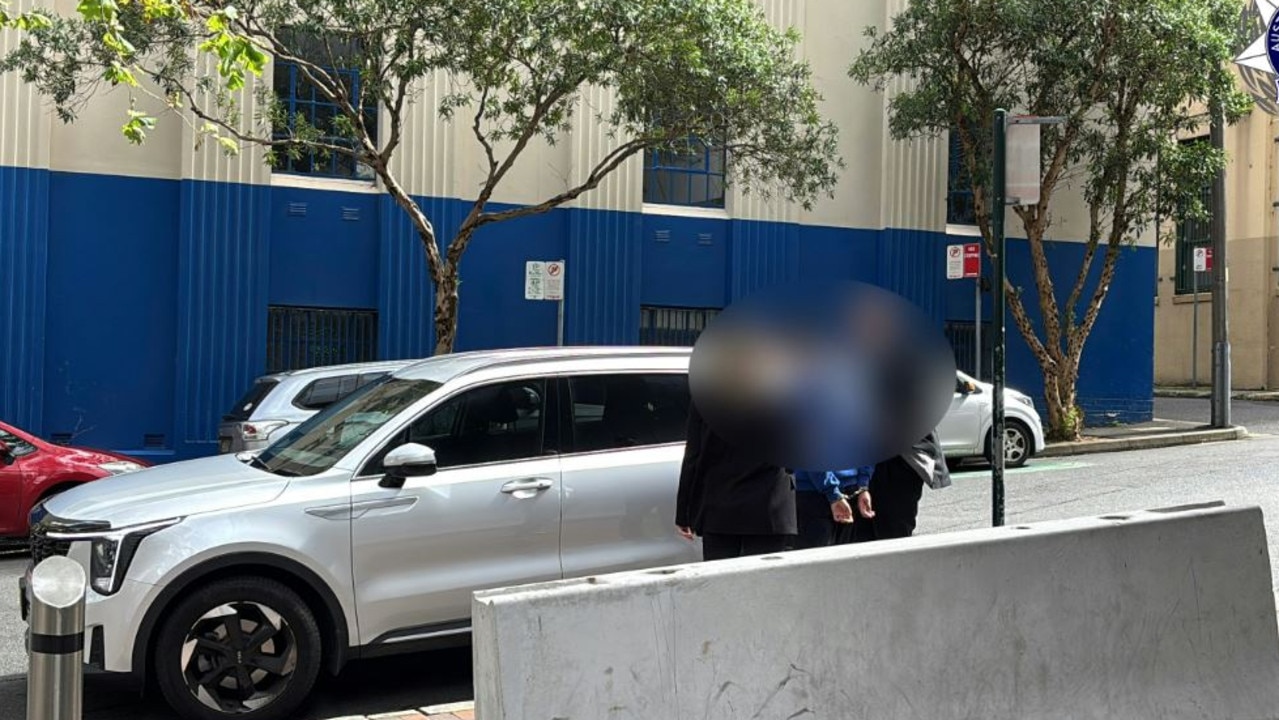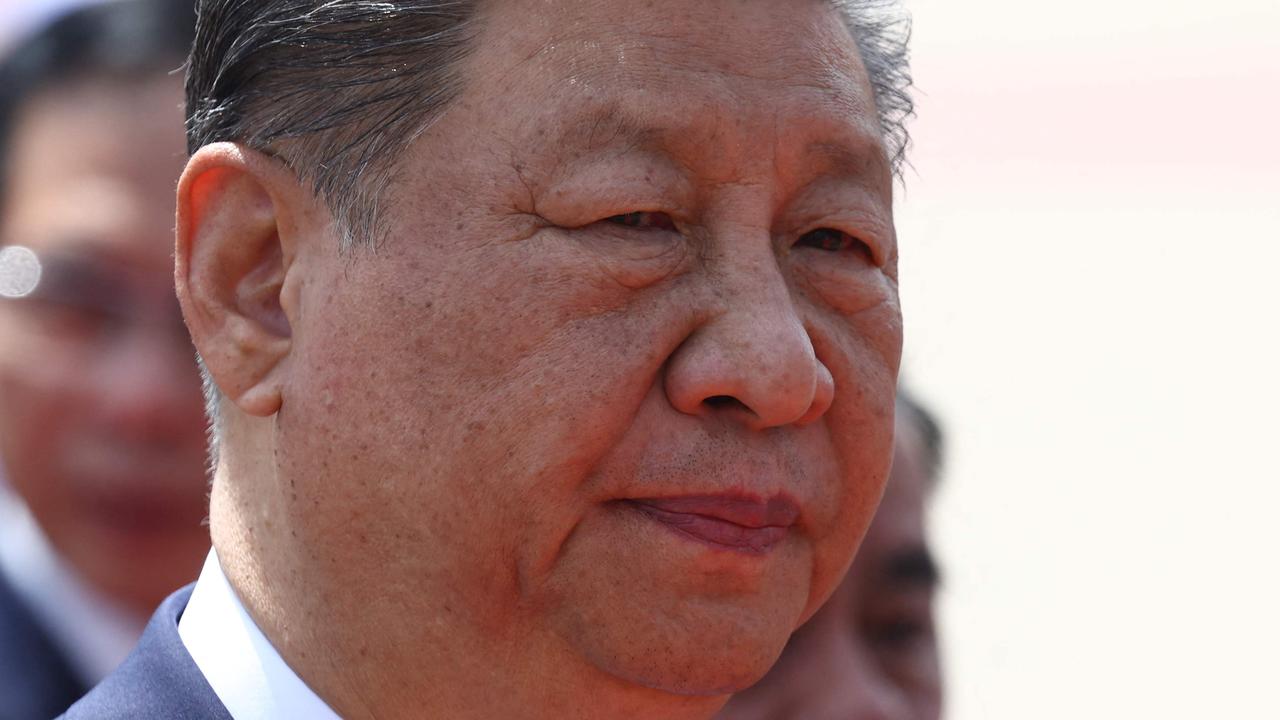Major crackdowns on foreigners across the world, Aussies warned
Countries across the world are cracking down on foreigners and Australians are warned to be on alert.
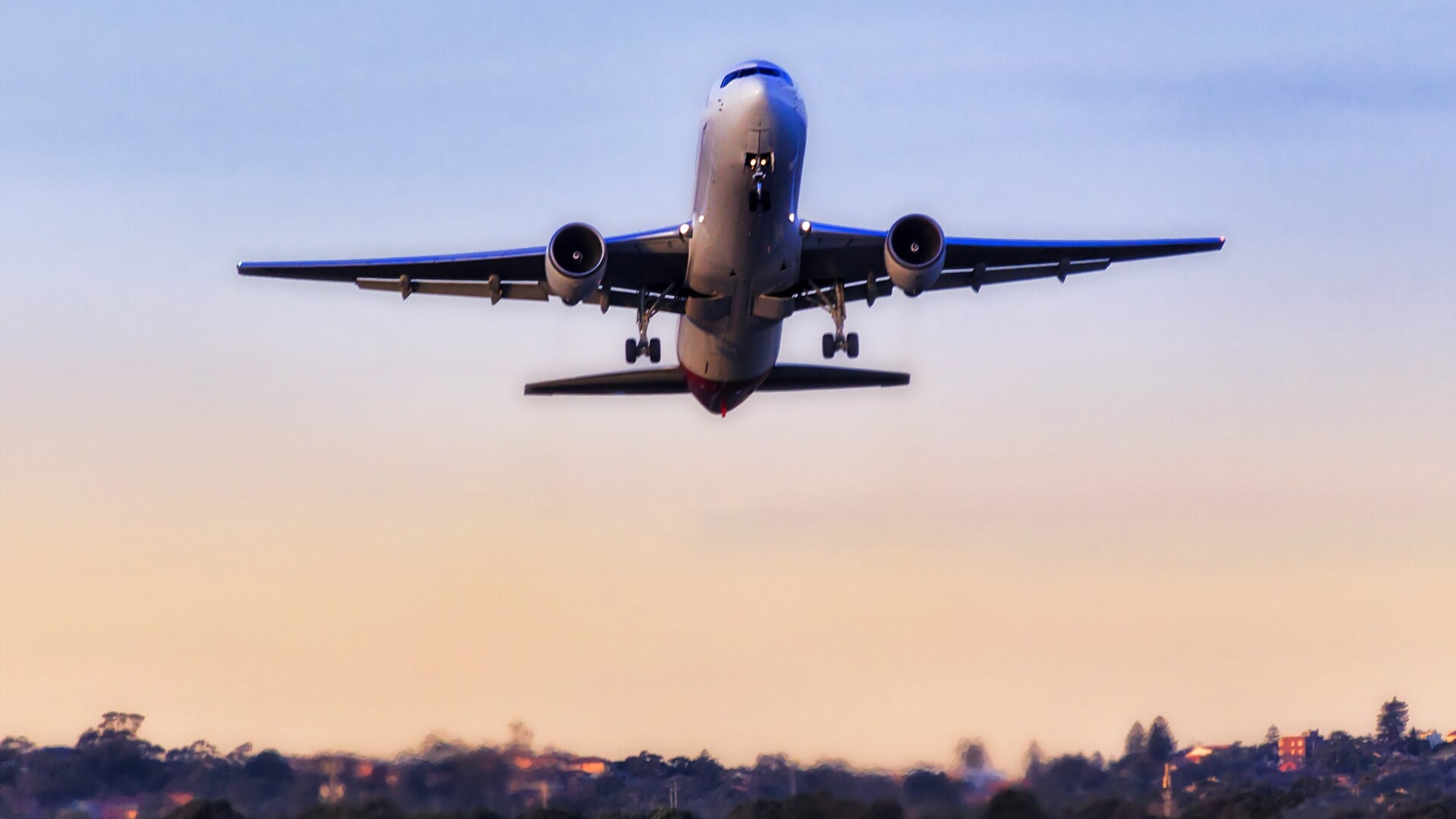
World
Don't miss out on the headlines from World. Followed categories will be added to My News.
Countries across the world are continuing to crack down on foreigners.
Popular cities are desperately trying to find new ways to cope with a massive boom in tourism post-Covid — as well finding solutions for housing crises and amping up border security.
Over in America, Australians are being warned they could be subject to more intense checks by US Customs and Border Protection (CBP), including inspections of emails, text messages or social media accounts at the airport.
James Robertson, head of global security for the firm International SOS, told news.com.au the company’s overall security case folio for the US (people wanting advice before travelling or while already over there) had tripled from January to April, compared to the same period last year.
He said the Los Angeles wildfires were responsible for some of that spike, but so was Donald Trump’s border crackdown.
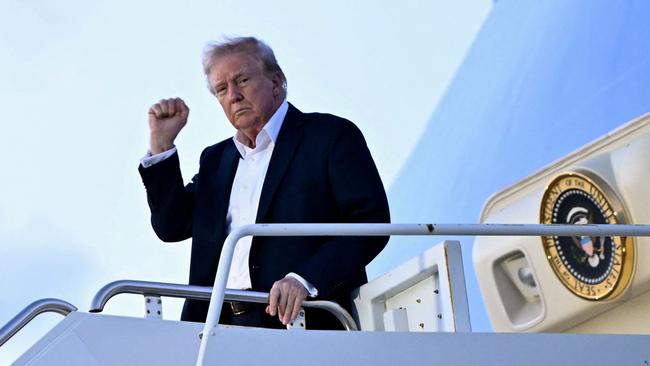
“We definitely encourage people to plan ahead and understand their specific personal vulnerabilities and to think through how the new rules might affect them,” Mr Robertson said.
“It’s obviously better to prepare for these sorts of things and consider what information might be on your devices before you go, then end up missing your connecting flight for example because you’ve shared memes or messages critical of the government.”
He said CBP had always had expansive powers but they had now been instructed to exercise them more extensively.
Foreign traveller arrivals in the US are expected to sharply decline this year.
Tourism Economics revised its outlook after Mr Trump’s sweeping tariffs announcement on April 2 — forecasting a 9.4 per cent decline in international visitor arrivals.
Their spending is expected to decline 5 per cent, representing a loss of $9 billion in spending.
It is a significantly different 2025 forecast than that released in December, which anticipated a 8.8 per cent growth in international visitation and 16 per cent increase in visitor spending.
Tourism Economics’ report says decisions from the Trump Administration are creating a “negative sentiment shift toward the US among travellers” — with Mr Trump’s stance on border security and immigration one of the factors cited as discouraging visits.
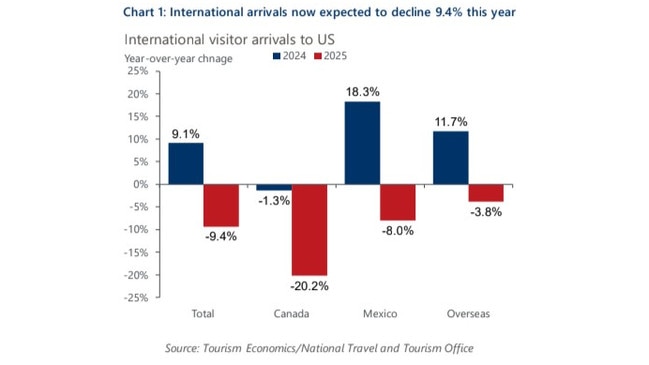
This week a new law came into effect requiring all foreigners in the United States longer than 30 days to register under the Alien Registration Act and carry proof of registration documentation at all times — or risk being fined, jailed or deported.
But according to the US government, you are already registered if you were issued Form I-94 or I-94W. Those who arrive by air with an Electronic System for Travel Authorization (ESTA) have an I-94 issued electronically on arrival. (You can find yours here).
Australians can travel to the US for tourism or business up to 90 days with an ESTA under the Visa Waiver Program (VWP).
The Australian Department of Foreign Affairs and Trade warns it is common for US authorities to carry out random travel document checks, including on public transport, and that Australians should be prepared to show these documents — including your passport and entry stamp, ESTA or valid US visa, and a copy of your electronic Form I-94. (More DFAT advice can be found here).
Foreigner crackdowns across the globe
While Mr Trump’s changes in the US appear to be getting the most attention, there is plenty more happening across the globe.
Italy has changed its citizenship laws, making it significantly harder for Australians (and other foreigners) to get a passport by descent. You can no longer get citizenship if your great-grandparents were born there, it has to be a parent or grandparent.
Venice is doubling its entry free for day-trippers this season and expanding the days it applies to. The fee, first introduced a year ago, was 5 euros ($9) and is now 10 euros ($18) for any visitors who don’t book more than four days in advance.
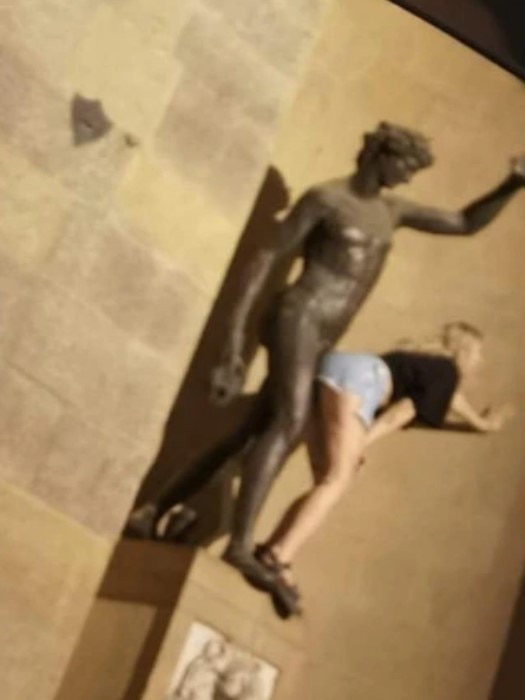
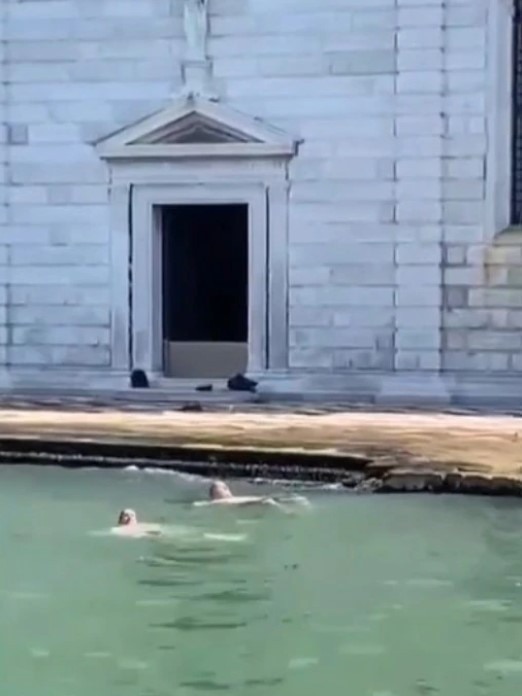
Spain has ended its “golden visa” that allowed non-EU citizens to get residency by buying property worth more than 500,000 euros, which closes off a pathway to Spanish citizenship.
Meanwhile, the city of Malaga has prohibited new holiday rental properties in 43 neighbourhoods for three years and a court has backed Barcelona’s ban on short-term holiday rentals from 2028.

The UK began requiring Australians, and a bunch of other countries who were previously exempt, to complete an application and pay a fee to enter. The EU will do the same but has delayed implementing the Electronic Travel Authorisation (ETA) system for 30 European countries multiple times, with the latest timeline indicating late 2026.
Scotland’s capital Edinburgh has revealed next year it will join a number of cities now charging a tourist tax on overnight accommodation. A 5 per cent charge will be added.
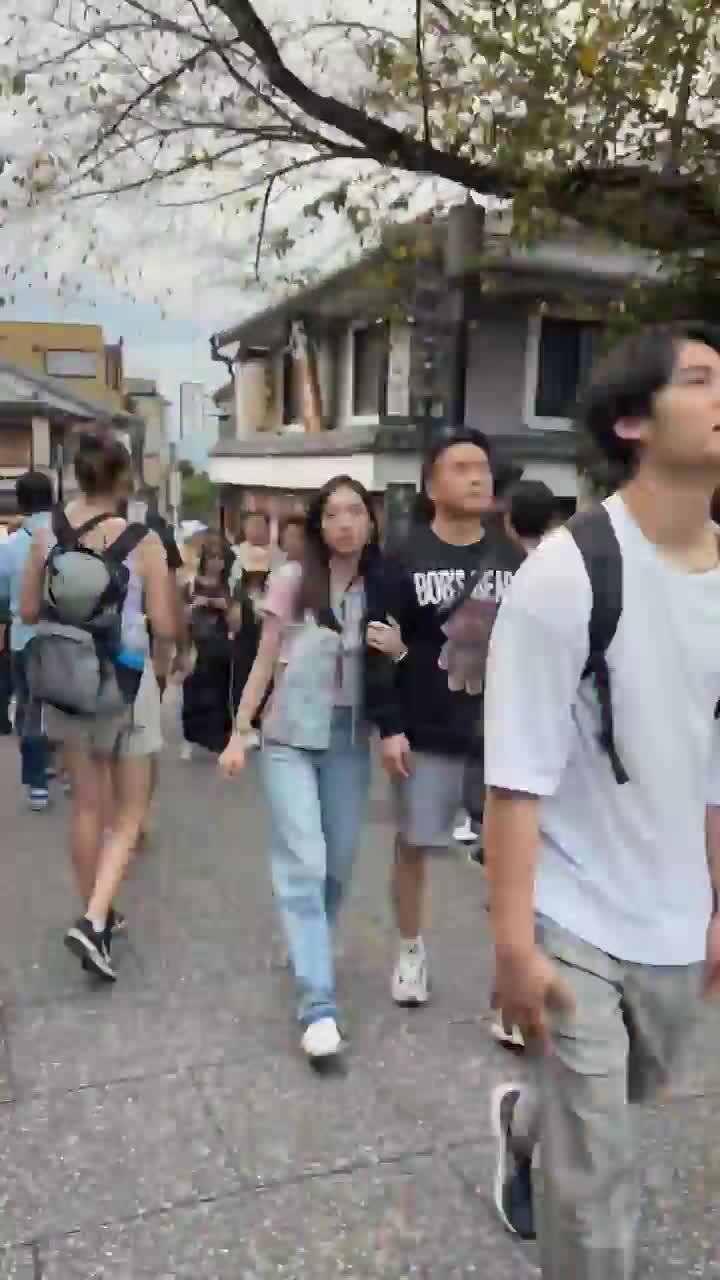
In Japan, the latest plan for hotspot Kyoto is to raise the historical city’s accommodation tax tenfold — from 200-1000 yen ($2 to $11) per night, depending on the price of the lodging, to between 2000 and 10,000 yen ($22 to $115) per night.
Meanwhile, the mandatory fee for hiking Mount Fuji has doubled to 4000 yen ($46) per person for the peak season this year. A fee and requirement to book a limited spot was first introduced last year.
Nepal has also hiked the permit fee to summit Mount Everest during peak season by 36 per cent. It will now cost $US15,000 ($25,150), up from $US11,000 ($18,450).
Last year, notable changes in holiday hotspots included Bali introducing a $15 fee to enter the wildly popular Indonesian island, Greece introducing a cap on visitor numbers to the famed Acropolis in Athens, and Amsterdam in the Netherlands banning new hotels from being built.
Originally published as Major crackdowns on foreigners across the world, Aussies warned




